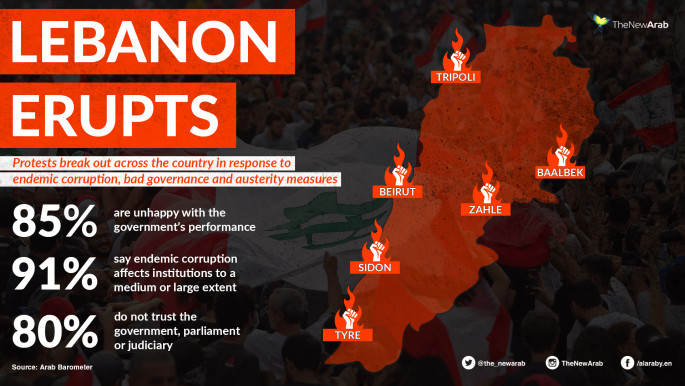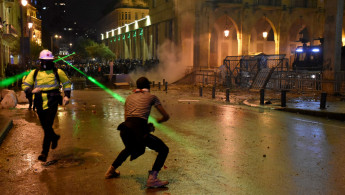Lebanon's parliament approves new government
Lebanon's parliament on Tuesday backed the government line-up and programme of incoming Prime Minister Hassan Diab in a confidence vote held as police tried to brutally suppress anti-corruption protesters outside.
Lebanese parliament Speaker Nabih Berri congratulated the lawmakers who sat through an eight-hour session before holding a vote that saw 63 out of 84 MPs present give their confidence to the new government.
Meanwhile, Lebanese security forces fired tear gas to disperse thousands of protesters near the parliament building in Beirut, where demonstrators were protesting the reforms.
Protesters tried to block the lawmakers' path, delaying the start of the meeting.
A group of protesters later set fire to a bank in the downtown area.
Nearly 400 people, including a legislator and a journalist, were injured in the demonstrations, some of whom were rushed to a hospital for treatment.
The meeting was being held amid a crippling economic and financial crisis, Lebanon's worst in decades, and an ongoing protest movement against the country's hated political class.
Police threw a tight security dragnet around the area, and special forces and riot policemen moved to quickly reopen roads that were closed by protesters.
"No confidence," chanted some of the protesters. The meeting began just before noon and was expected to last until Wednesday, unless a vote is held Tuesday night.
|
||
One protester, who spoke to The New Arab, affirmed the prevaling anti-government stance on Tuesday.
Read more: Lebanon cabinet approves economic plan despite protesters' misgivings
The new cabinet's "emergency rescue plan" includes reforms in the judicial, financial and administrative fields, as well as fighting corruption and fixing the country's finances, according to a copy.
Lebanon has one of the highest debt ratios in the world, standing at more than 150 of the GDP and worsening over the past years with little economic growth and high unemployment.
Lebanon is on the brink of defaulting on its debt and the impact is being felt by all social classes, with tough restrictions on cash withdrawals and a devaluation of the national currency.

Agencies contributed to this report.
Follow us on Facebook, Twitter and Instagram to stay connected





 Follow the Middle East's top stories in English at The New Arab on Google News
Follow the Middle East's top stories in English at The New Arab on Google News
![Israeli forces ordered bombed Gaza's Jabalia, ordering residents to leave [Getty]](/sites/default/files/styles/image_330x185/public/2176418030.jpeg?h=a5f2f23a&itok=_YGZaP1z)

